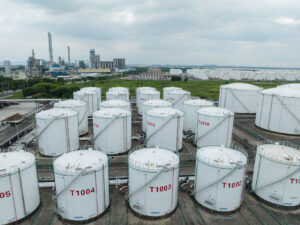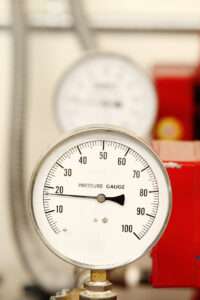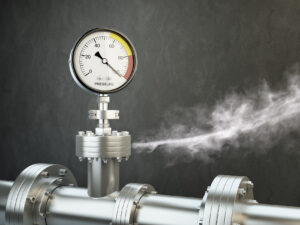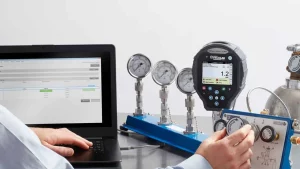Introduction
In the petroleum industry, precise temperature measurement is critical for ensuring operational efficiency, safety, and product quality. Bimetallic thermometers are widely used in various petroleum processes due to their reliability, durability, and ability to function in harsh environments without requiring external power sources.
Working Principle of Bimetallic Thermometers
Bimetallic thermometers operate on the principle of thermal expansion. They consist of two bonded metal strips with different coefficients of thermal expansion. When exposed to temperature changes, the metal strips bend due to their different expansion rates, causing the thermometer’s pointer to move and provide an accurate temperature reading. This simple yet effective mechanism makes them ideal for industrial applications.
Applications in the Petroleum Industry
- Crude Oil Refining
In oil refineries, maintaining the correct temperature during distillation and cracking processes is crucial. Bimetallic thermometers help monitor temperatures in distillation columns, heat exchangers, and reactors, ensuring optimal performance and preventing overheating. - Pipeline Monitoring
The transportation of crude oil and refined products requires precise temperature control to maintain viscosity and prevent blockages. Bimetallic thermometers are installed along pipelines to provide real-time temperature readings, enabling timely adjustments and reducing risks of flow disruptions. - Storage Tanks
Petroleum storage tanks require constant temperature monitoring to prevent degradation of stored fuels. Bimetallic thermometers provide accurate readings without the need for an external power supply, making them a reliable choice for remote storage sites. - Drilling Operations
In oil drilling, temperature fluctuations affect drilling fluids and equipment performance. Bimetallic thermometers are used to monitor temperatures in drilling mud and wellbores, ensuring stability and safety in operations. - Petrochemical Processing
Petrochemical plants rely on precise temperature control for chemical reactions, polymerization, and refining processes. Bimetallic thermometers help maintain the required conditions, improving efficiency and product quality.
Advantages of Bimetallic Thermometers in the Petroleum Industry
- Durability – Resistant to harsh conditions, including high pressure and corrosive environments.
- No Power Requirement – Operates without electricity, reducing operational costs and ensuring reliability in remote locations.
- Wide Temperature Range – Suitable for extreme temperatures, from cryogenic conditions to high-heat applications.
- Easy Installation & Maintenance – Simple design allows for quick installation and minimal upkeep.
Bimetallic thermometers play a crucial role in the petroleum industry by providing accurate and reliable temperature measurements across various applications. Their robustness, energy efficiency, and adaptability make them indispensable in ensuring safe and efficient petroleum operations. As the industry continues to evolve, the demand for precise and durable temperature measurement solutions like bimetallic thermometers will remain strong.



